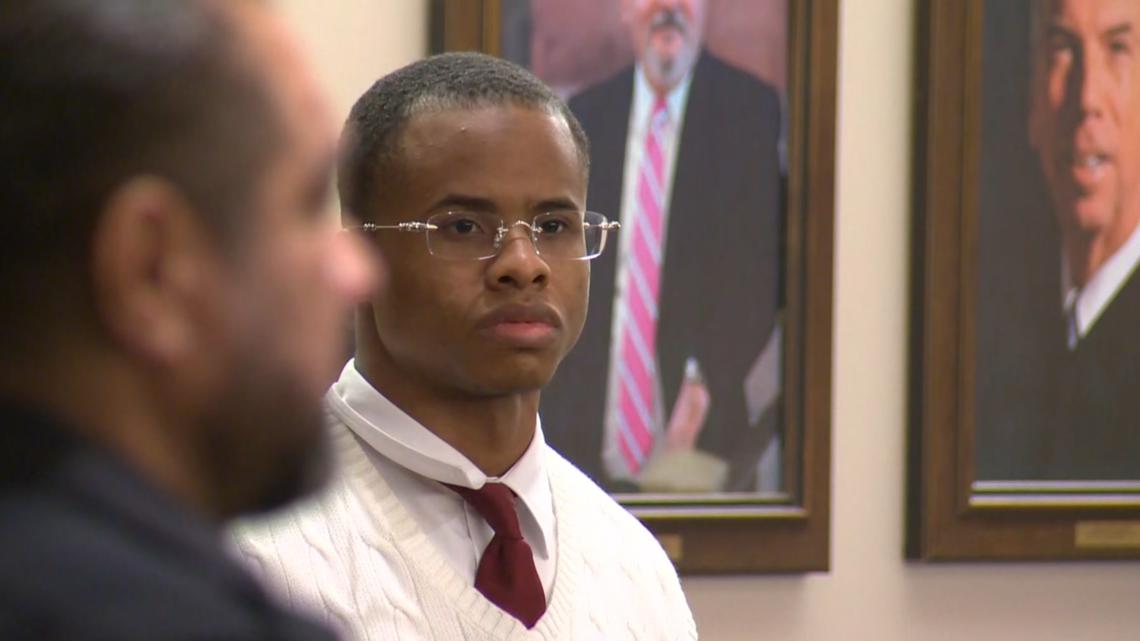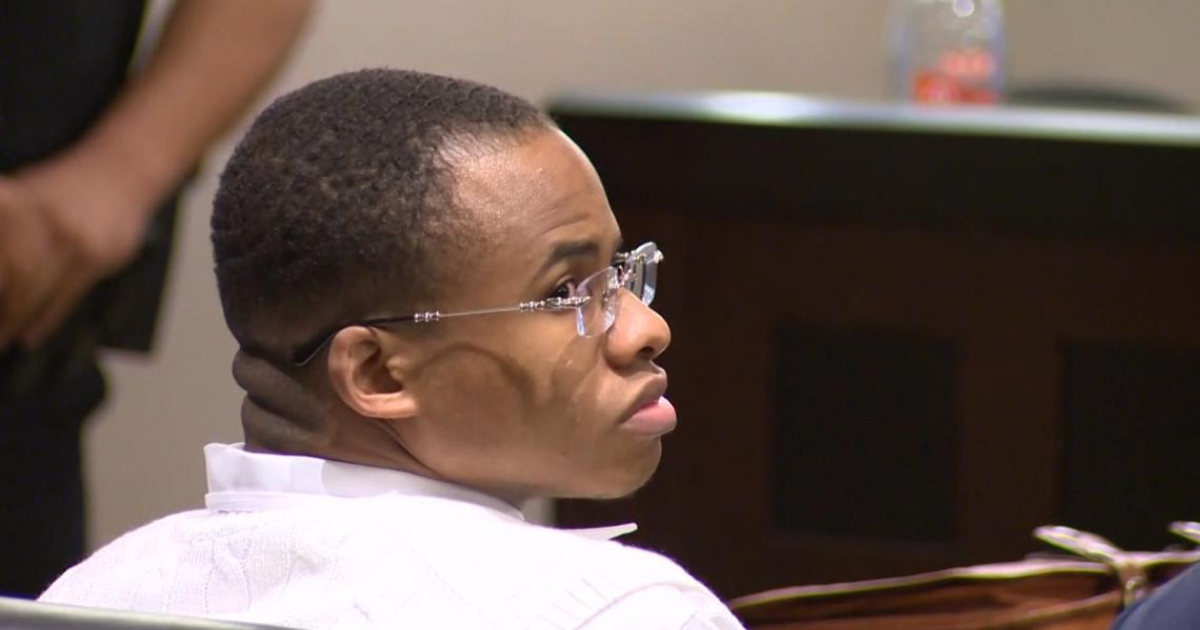SAN ANTONIO — The California-born rapper who goes by “Tay-K 47” was sentenced to 80 years in prison for the murder of a young San Antonio man in 2017, the culmination of a trial that began two weeks ago.
187th District Court Judge Stephanie Boyd announced the jury’s sentence for 24-year-old Taymor McIntyre just before 10 p.m. Tuesday, after hours of testimony rounding out the punishment phase of the trial—much of which focused on how McIntyre’s turbulent childhood should or shouldn’t play a role in the amount of time he was to serve behind bars.
“I do realize that while this is a lot of time, you’re still alive. You can still better yourself,” Boyd said, addressing McIntyre directly. “But the complainant in this case is deceased, and you need to internalize that the complainant in this case is deceased. You’re going to have to make changes.”
He was originally charged with capital murder charge after authorities said he shot and killed 23-year-old Mark Anthony Saldivar in a San Antonio Chick-Fil-A parking lot in April 2017. He faced life in prison with the possibility of parole before a jury instead opted for a lesser charge of murder after deliberating on Monday.
Prosecutors said that McIntyre shot Saldivar after the rapper tried to rob him. Authorities said McIntyre had picked up Saldivar, who was a photographer, in a car after asking him to take photos of the rapper for a new song.
McIntyre was just 16 when he pulled the trigger.


McIntyre’s attorneys had criticized the police investigation of the shooting, alleging the case relied too much on self-serving statements from witnesses in the car when the shooting happened.
“Taymor McIntyre is not guilty of capital murder, murder, or manslaughter, and the reason for that is very simple,” John Hunter, one of McIntyre’s attorneys, told jurors during closing arguments last week. “You have to do it right. You have to do the work. And this case clearly demonstrates the work wasn’t done.”
In the early stages of this month’s trial, state prosecutors argued Saldivar was beaten, shot, and left for dead after McIntyre and some friends picked him up for a photo shoot. McIntyre’s attorneys, meanwhile, claimed the state’s argument was based off assumptions and guesswork, saying that witnesses had “vested interests.”
On Tuesday, the defense argued how much tie McIntyre should spend in prison. A forensic and neural psychologist utilized by the defense as a fact witness testified to his mental abilities, noting McIntyre came from generational trauma including drug abuse, violence and prostitution. He and his siblings were apparently in and out of foster care and placed in abusive environments.
The psychologist also mentioned how young McIntyre was at the time of the crime, noting his frontal lobe wasn’t fully formed.
Then the defendant’s sister took the stand, where she testified that she and her younger brother were pulled from their homes and placed in the foster system because their mother was addicted to drugs. But, she testified, they were abused by their foster mother both physically and mentally.
“We wanted her to love us, but she was always disappointed in us and we’d be accused for things we didn’t even do,” she said.
Boyd referenced that history when speaking to McIntyre on Tuesday night.
“From what I can tell, his mother wasn’t a good parent to him. His father wasn’t a good parent to him. Child Protective Services was not good, and if you believe the testimony, I don’t know why Child Protective Services would place children back with a father who put the children’s mother in a hospital,” she said.
McIntyre was previously convicted for killing 21-year-old Ethan Walker during a 2016 home invasion in Tarrant County, a crime for which he received a 55-year prison sentence. Boyd determined the sentences would run concurrently and that McIntyre would be forbidden from contact with Saldivar’s family other than for legal matters.
A representative for Saldivar’s family read a victim impact statement on behalf of his mother after the sentencing was read, saying the victim’s “dreams, ambitions, aspirations and goals (were) taken from him by you.”
A day after the sentence was determined, Bexar County Criminal District Attorney Joe Gonzales said the punishment “proves that accountability knows no social status,” referencing McIntyre’s reputation as a musician.
“Whether a person is a celebrity or an everyday individual, their actions have consequences,” his statement read. “The results of this case reflect our office’s commitment to upholding the law and ensuring that those who repeatedly violate it are held accountable, for the greater good of the community.”
